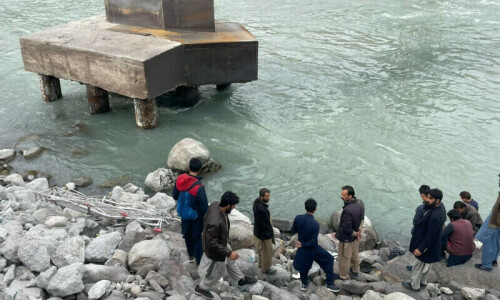WASHINGTON, April 2: A US programme that recruits mostly highly educated Asian professionals has come under increasing scrutiny as Americans debate moves to tighten immigration regulations. Launched in 1990, the H-1B visa programme allows foreign scientists, engineers and technologists to be employed for up to six years, at the end of which they must obtain a permanent residency or return home.
While the programme is popular among key high-tech companies and aimed at bringing in some of the world’s best brains to help the United States remain competitive, some politicians and groups concerned about American job security argue that it may not be working as intended.
At the height of the dot-com boom from 2001 to 2003, US law was amended to increase the number of H-1B visas to a record 195,000 a year but the annual cap was restored in 2004 to 65,000. It has remained there ever since.
“Even with a lower cap, we still hear stories of US workers being laid off and replaced by foreign workers — sometimes foreign workers on H-1B visas,” said Republican lawmaker John Hostettler, head of a House of Representatives immigration panel that held a hearing last week to consider whether Congress should raise the visa limit.
Especially troubling, he said, were “pervasive accounts of American computer programmers and engineers who, once they gained some experience and some grey hair, become unemployable in a youth-obsessed, and possibly low-wage obsessed, industry.
“This raises serious questions as whether the H-1B programme is working as intended,” he said.
At the hearing, an American computer network-management specialist said jobs he had sought for were offered to foreign workers — in one case, at a salary he claimed was 30,000 dollars less than the market rate.
“I am here today as an American citizen and an engineer whose life has been devastated by that (H-1B) programme,” said David Huber, adding that he was unemployed for three years during which time Congress allowed companies to hire more than 300,000 foreign workers on H-1B visas because they claimed they could not find qualified Americans.
“I am here before you today to tell you that this claim is not true,” said Huber, who once worked as a network administrator for the US space programme.—AFP











































Dear visitor, the comments section is undergoing an overhaul and will return soon.